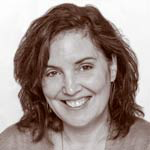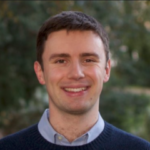
The pool at Harrah’s Resort Atlantic City is a dramatic space, covered by a soaring glass dome and filled with palm trees. One night last September, it was decked out for a characteristically blingy, Atlantic City–style reception. House music blared as go-go dancers whirled on floating platforms. A raw bar was piled high with sushi and oysters, the bar was open, and local chefs served sliders and drinks at stations alongside the pool.
But the 200-plus attendees weren’t run-of-the-mill partygoers — they were a decidedly discerning bunch. This kick-off reception for the Caesars Entertainment Educational Experience was aimed exclusively at meeting planners, part of a two-day event that combined site visits with plenary-style education sessions, luxe dinners at celebrity-chef restaurants, and even a stint packing boxes at a local food bank.
“From start to finish, I was observing as much as possible, from transportation to the facilities to the décor,” said Cathy Kusuma, senior director of training and strategic partnerships at Florida-based Cruise Planners, who attended the program with a colleague. “It gave us an idea of how things flow [at Caesars-owned properties], from the catering to the layouts to the AV they have available.”
What she found, Kusuma said, was “polished.” After all, the Caesars Educational Experience is in its 10th year — one of the very first meeting-planner education events designed by a hotel company, and important enough to the brand that it involves Caesars personnel from the top down.
PLANNING FOR PLANNERS
Not every hotel chain offers face-to-face meeting-planner education, but those that do say that the events build value on both sides. They can last anywhere from a few hours — such as Omni Hotels & Resorts’ Be Collaborative program — to a few days, and combine professional and personal education with site visits, sumptuous meals, and glimpses into the inner workings of a property.
“It’s one of the hardest events to put on, because you’re putting it on for professional planners,” said Jordan D. Clark, vice president of sales for Caesars Entertainment. “If breakfast is at 8 a.m., planners will instinctively be there at 7 a.m. On top of that, they hold themselves to such a high bar that you really need to be on your game to pull it off.”
Clark helped design the first Educational Experience, held in Las Vegas in 2004. “I was searching for ways to engage customers who, at the time, were getting a lot of pushback from their companies,” he said. “They were saying, ‘Please don’t do fams, because we don’t do those anymore.’ I realized that by designing an educational experience, we could provide value to the planners and give them a way to justify spending more time with us, as well as keep them learning and growing.”
When Clark presented his proposal to the higher-ups at Caesars, they gave a reluctant okay — along with “a very small budget,” Clark said. “They wanted to know that the financial investment was going to have a result. We had done the homework, but that’s not something we could guarantee. So I put an incredible amount of thought into content. I did not leave any I’s undotted or T’s uncrossed.”
The company invited 36 planners to the first event, “Diamonds Are a Planner’s Best Friend,” at Caesars Palace Las Vegas Hotel & Casino in 2004. Clark and his team imbued the program with a “ragtime” feel — for instance, fitting out planners in zoot suits and flapper-style dresses for a speakeasy-themed party. For the educational component, they invited motivational and business speakers. The format was a success. “It took off so rapidly and the word got out so quickly,” Clark said, “that we ended up doing three of them a year because it was so popular.”
The invitation-only Educational Experience, which takes place in both Vegas and Atlantic City, has since grown to between 200 and 250 planners per event. Some planners are quasi-regulars, Clark said, and return more than once — even though Caesars puts them to work. “We used to do excursions, such as riding dune buggies and taking helicopter rides,” said Clark. “Now, giving back to the community is an integral part of what we do every year. It’s something that’s so powerful. When a team of people is faced with a challenge and face that challenge together, it creates a bond that can’t be replicated.”
Caitlin Murphy, Cruise Planners’ director of public relations, who also attended the Educational Experience in Atlantic City last September, agrees. “When I came into this thing, I thought it was going to be a hard sales meeting,” she said. “But I was surprised. It was powerful and inspirational.”
DESIGNING A ‘GENIUNE’ EXPERIENCE
Younger than the Educational Experience, but with many of the same goals, Omni’s Be Collaborative program aims to provide what Omni calls “an innovative and educational event experience.” It was born four years ago out of feedback from the company’s customer advisory board. “We were having conversations about our brand, and how do we connect differently than other brands? We think our story is a little bit different, a little bit more compelling,” said Tom Faust, vice president of sales for Omni. “We took a look at the traditional ways of connecting — via trade shows, via cocktail receptions, via hard-copy advertising and marketing. [The advisory board] said, you know, if you want to connect with people, you need to add value. What can you do to enhance [planners]? What can you do to help them be more successful in their lives?”
The board encouraged Omni to create a program that was “genuine” and “sincere,” Faust said, and that offered planners continuing-education credits for attending. So he and his team designed a half-day event that wove together lunch and a reception with education — deep, no-holds-barred education. “We talked about group contracts, attrition and cancellation [policies], force majeure and cutoff dates,” Faust said. “We hired two attorneys — we brought in our own corporate attorney — and did a point/counterpoint for 60 minutes, with a moderator. People said, ‘Are you guys crazy? You’re going to put two attorneys on stage to talk about group contracts in front of your customers?’ But we wanted to give [planners] real content.” Omni also brought in author and life coach Simon T. Bailey, who talked about “how to live your life differently and prioritize, those kinds of things.”
That first year, Omni offered Be Collaborative programs at six U.S. properties. As with Caesars’ Educational Experience, the event struck a chord — and evolved as Omni gathered feedback. During the second year, “We talked about those pain points — where do suppliers and buyers disconnect?” Faust said. “Then our customer advisory board said, ‘Listen, guys, why don’t we talk about revenue management? No one talks about it, but everyone knows it’s here.’ So we … presented the principles of revenue management so that people could understand. We talked about RevPAR and the STAR report — all kinds of things that hotel companies don’t talk about often. I think it was revealing for clients to be able to understand what motivates the hotel.”
In 2014, Be Collaborative took place at Omni hotels in eight U.S. cities: New York, Chicago, Austin, San Francisco, Atlanta, Boston, Dallas, and Hot Springs, Virginia. Each one begins with a networking lunch and ends with a reception; in between, Bailey still talks about personal development, while the education portion has evolved into TED-style talks of 20 to 25 minutes each. Last year, they included a rundown of Omni Meetings University, the firm’s brand-new online education portal, as well as industry trends and event technology. “The feedback [from planners],” Faust said, “was that ‘you need to talk more about meeting-room technology, because it’s expensive, it’s changing constantly, and it’s difficult for us to purchase.’”
BUILT-IN ROI
How do these programs shake out in terms of return on investment? Although it’s not entirely measurable, Faust said, “the lead volume is considerable. We’re building relationships, and there’s a lot of product knowledge being shared.”
Clark echoes that. “The ROI on the program is substantial,” he said. “It absolutely helps us build deep relationships with customers.” But Clark emphasized that “this is a non-selling environment. Salespeople are not beating the customers over the head with a stick.”
The program can also serve its host destination. In Atlantic City, Murphy and Kusuma thought the Educational Experience did as much to demonstrate to planners that Atlantic City, while in transition, is still ripe for meetings business as it did to show off Caesars. “It really helped me significantly in getting to know the area and its properties,” said Kusuma, who has already reached out to one speaker from the program. She said that she’s “very likely” to book stays and events at Caesars properties down the line — as well as use some of the ideas she collected during the Educational Experience.
“Everybody plans meetings differently. We would never profess to teach them that,” Clark said. “We try to go very strong on things they can take with them no matter who they work for — things they can use in their everyday jobs.”




